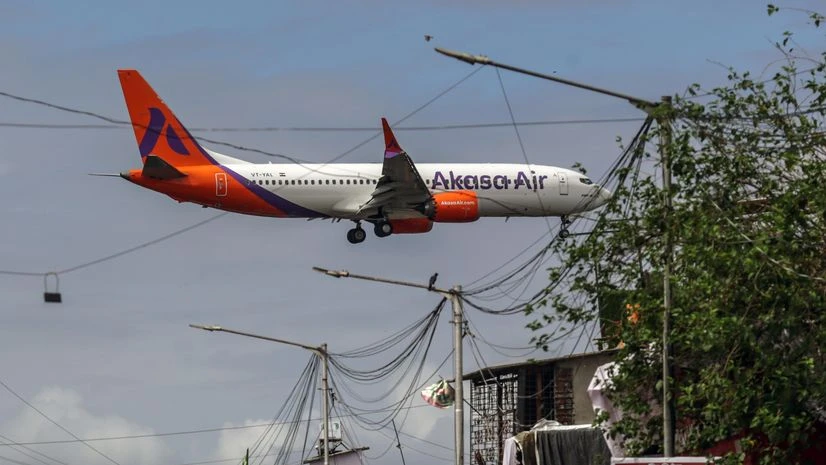Akasa Air, the Indian low-cost carrier, has entered into a codeshare partnership with Etihad Airways, the flag carrier of the United Arab Emirates.
This partnership allows Etihad to sell tickets on Akasa Air's flights, which marks a significant step in expanding the reach of Akasa's services, industry sources told Business Standard on Friday.
The decision to develop cooperation with the Gulf carrier has come at a time when Indian carriers are divided on whether the Centre should hand more bilateral rights to West Asian countries.
In June this year, Air India and SpiceJet opposed it stating that the Indian government should focus on building major Indian airports as hubs, while Akasa Air and IndiGo said a decision should be taken after a holistic analysis.
A codeshare partnership allows one airline to market and sell seats on a flight operated by the other. A bilateral right in aviation refers to the agreement between two countries that allows airlines from both nations to operate a specific number of commercial flights between them.
Also Read
These rights define routes, frequencies, and other operational terms for fair and mutual air connectivity.
Industry sources on Friday said the codeshare partnership between Akasa Air and Etihad Airways will come into effect on flights operating from March or April next year.
"It will be interesting to see if Akasa Air is able to secure additional rights under the existing bilateral rights," a source said.
Akasa Air did not respond to queries sent by Business Standard on this issue.
At present, Akasa Air operates a daily flight on the Mumbai-Abu Dhabi route.
As the airline has signed this codeshare partnership, it is intensifying its operations at Abu Dhabi airport. In addition to the Mumbai-Abu Dhabi route, the airline will also have daily flights on Ahmedabad-Abu Dhabi and Bengaluru-Abu Dhabi from the summer season next year, when this codeshare partnership will come into effect.
"It will be interesting to see if Akasa Air will be able to secure more bilateral rights under the existing bilateral air services agreement," a source noted.
West Asian carriers like Etihad, Emirates, and Qatar Airways have been asking India to increase bilateral rights so that they can operate more flights to and from India.
However, carriers such as Air India believe that granting more bilateral rights to certain Gulf countries will impede the growth of its long-haul and ultra-long-haul flight operations to North America and Europe.
When asked about this issue at CAPA India Aviation Summit 2024 in June, Air India CEO & MD Campbell Wilson said: "Indian carriers have recently ordered more than 1,000 aircraft. We have an appetite for more. We are committing to that on the basis that there would be an economic return that investment, which, if you add it all, is well over $100 billion...If the rug is pulled out from under us (by granting more bilateral rights), and if we can't fly those aircraft, we will not take them (aircraft)."
He said this would then affect the ability of the Indian passenger to fly non-stop to long-haul destinations. Wilson had talked about how certain hubs, closer to India, are just taking traffic from India and transferring 80-90 per cent of it to other parts of the world.
"They are feeding their economy and their hub, not India's (economy)," he added.

)